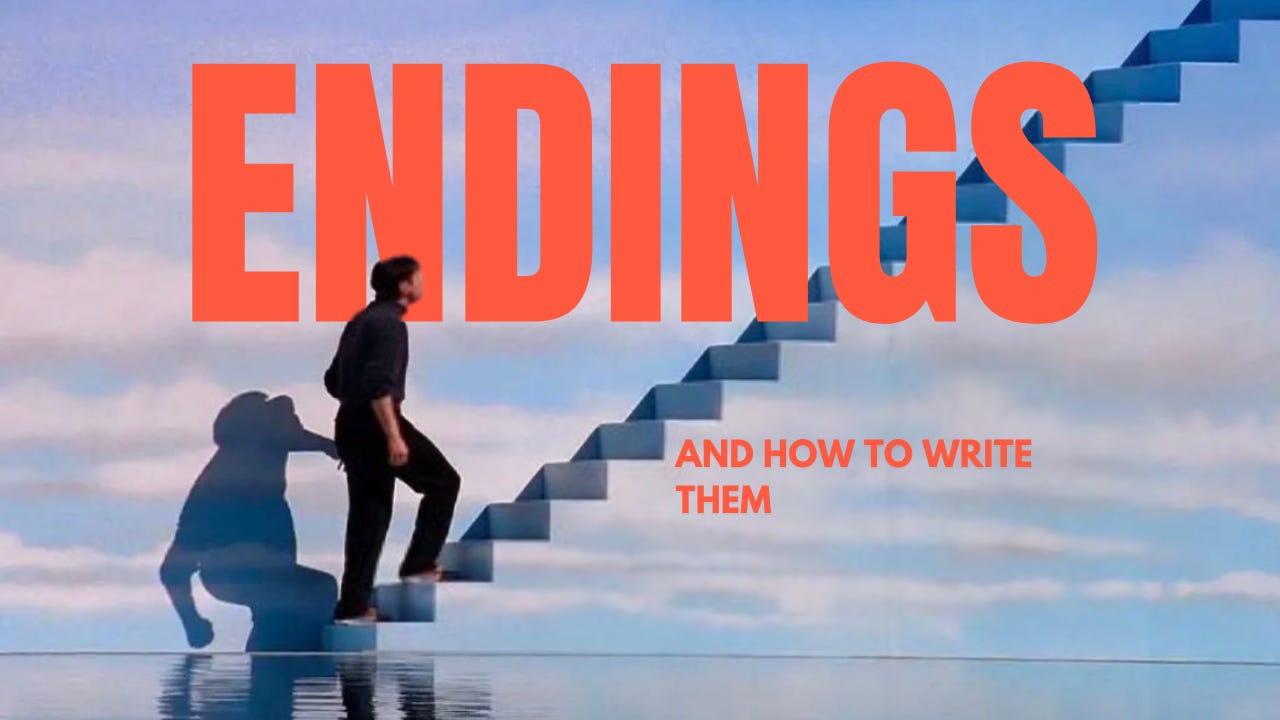Some say a story is only as strong as its ending. You could also make a similar argument for its beginning, its main action, or its climax, but in reality the end is the part that sticks with you the most. An average story can be boosted by a good ending, and a good story can become great. But what is the secret to a great ending, and why are they so hard to write?
Goals of an Ending
To begin, one must think about what an ending is for. In my eyes, every ending needs to satisfy three completely independent goals.
Firstly, emotional closure. The reader should feel like their investment in reading your story has been satisfied. Without this emotional closure the story may feel like it is incomplete — a melody finished without completing the chord. Secondly, narrative closure is also key.
Obviously, a key component is completing the narrative elements of the story and tying up all the key plot threads, minimizing the holes.
The final key point is thematic resonance: leaving the reader with the “aftertaste” of the story’s meaning. It’s really important that that last note of the story is resonant, and is perfectly placed, so that the story can be complete. If by ending the story we are folding it up neatly at its conclusion, then the thematic resonance is the bow.
Types of Ending
Broadly speaking, endings in fiction can be essentially categorised. You could look at a simple resolved ending, where the entire story is concluded neatly. (End of Harry Potter) Another could be a more open ending, where there is a sense of ambiguity, leaving the ending open for interpretation. (Prisoners) A twist ending is also common, where the final revelation reframe the entire story. (The Prestige) All these options are equally valid, and the specific type you choose is not actually that critical to its effectiveness.
Key Factors to an Ending
What is important are the next factors, which apply to literally every single type of ending. An ending should feel like it is the ending of the story, almost like it would be impossible to have any other. Essentially, it should feel inevitable, while still maintaining the surprise of an ending.
It also needs to maintain the story's thematic and tonal identity, and thus should align with the story’s voice that has been displayed throughout.
Pitfalls of an Ending
Furthermore, there are many pitfalls which can instantly create problems with your ending. The most famous is ‘Deux ex machina’ or god from the machine. This is essentially referring to when the ending of a story involves something feeling unearned, like an intervention seemingly from god. This is surprisingly common in some writing, and should be avoided at all costs.
Developing the perfect ending is a tricky task, but can certainly be achieved with careful effort. Writing the ending, or at least knowing the ending first, is very important. Without knowing where your story is going, it’s almost impossible to write any of it. Testing out different endings can also be a possibility when writing this way.
Conclusion
Overall, an ending is arguably the most important point in your entire story (no pressure!), and that should not be taken lightly. If you think about your favourite books, films, and tv shows, I almost guarantee that you forgot most of the scenes in the middle, but I’m almost certain that you remember the ending.
Tell me in the comments: What is your favourite ending ever? Either one you’ve read, or watched, or one that you’ve written.
Make sure you subscribe and don’t miss out my post on Openings, which will be posted next week, and will discuss how to hook your reader from the very first page. If you love these articles and want more, also don’t be afraid to upgrade to a paid subscription (Less than a Big Mac a month!), and you’ll literally get double the amount of articles per week!
Hope you enjoyed, and happy writing!



Thank you, this was helpful!
One ending I particularly like is the ending of Ratatouille. And I can see how it would be an unsatisfactory ending BUT I find it supremely satisfying. Like the restaurant closed, they lost everything they were working toward, BUT THEY WERE HAPPY
*chef's kiss*